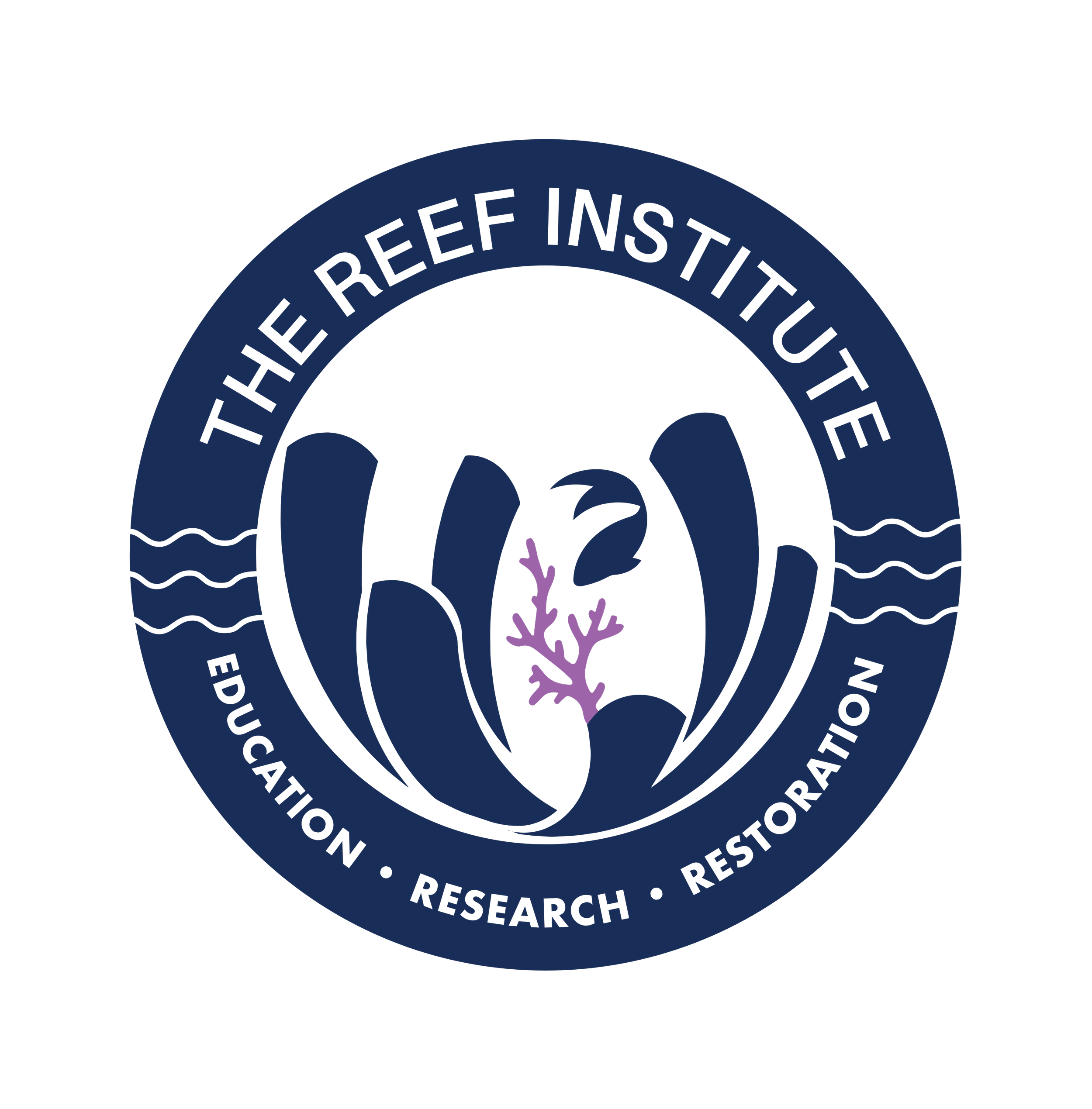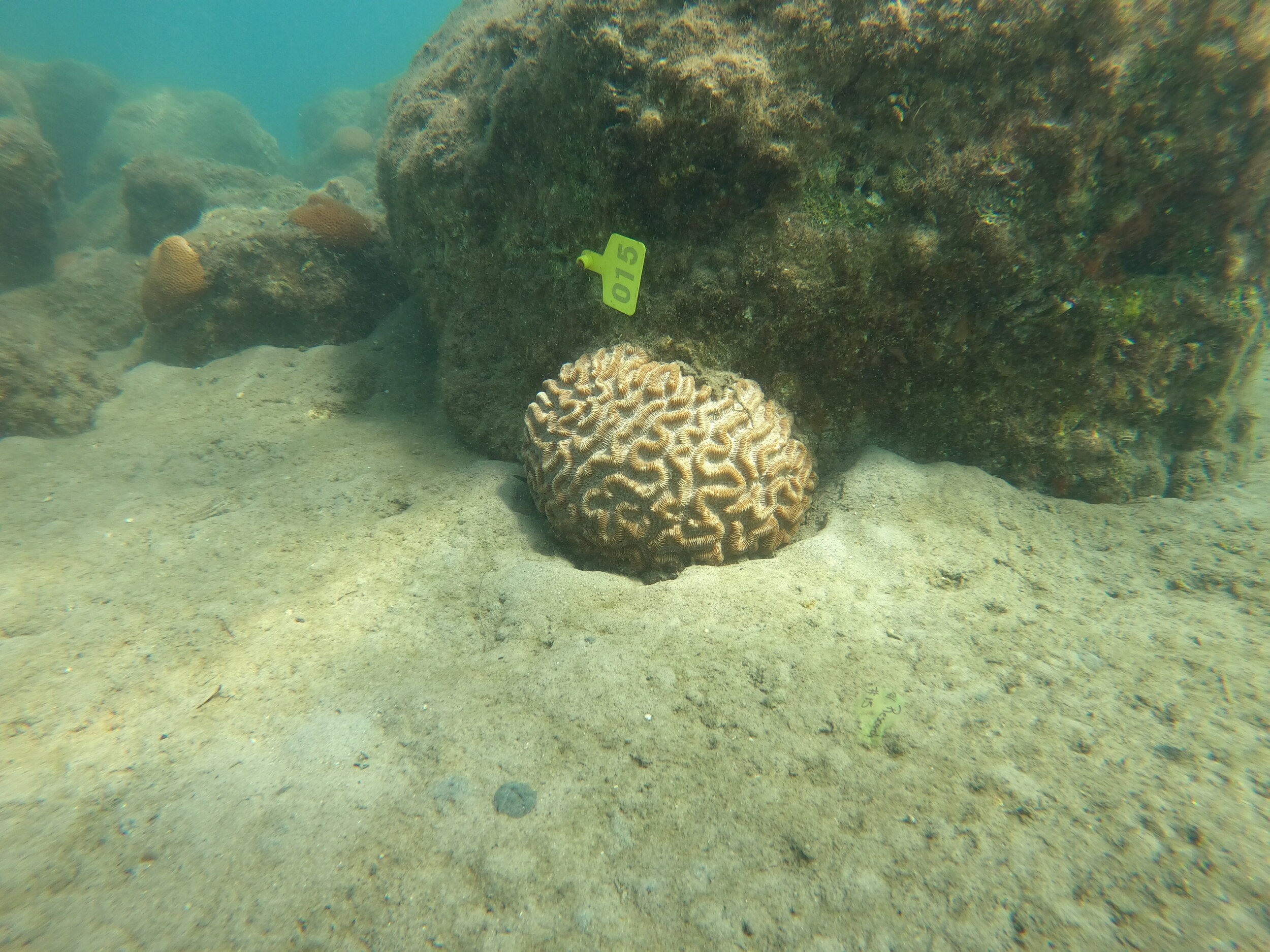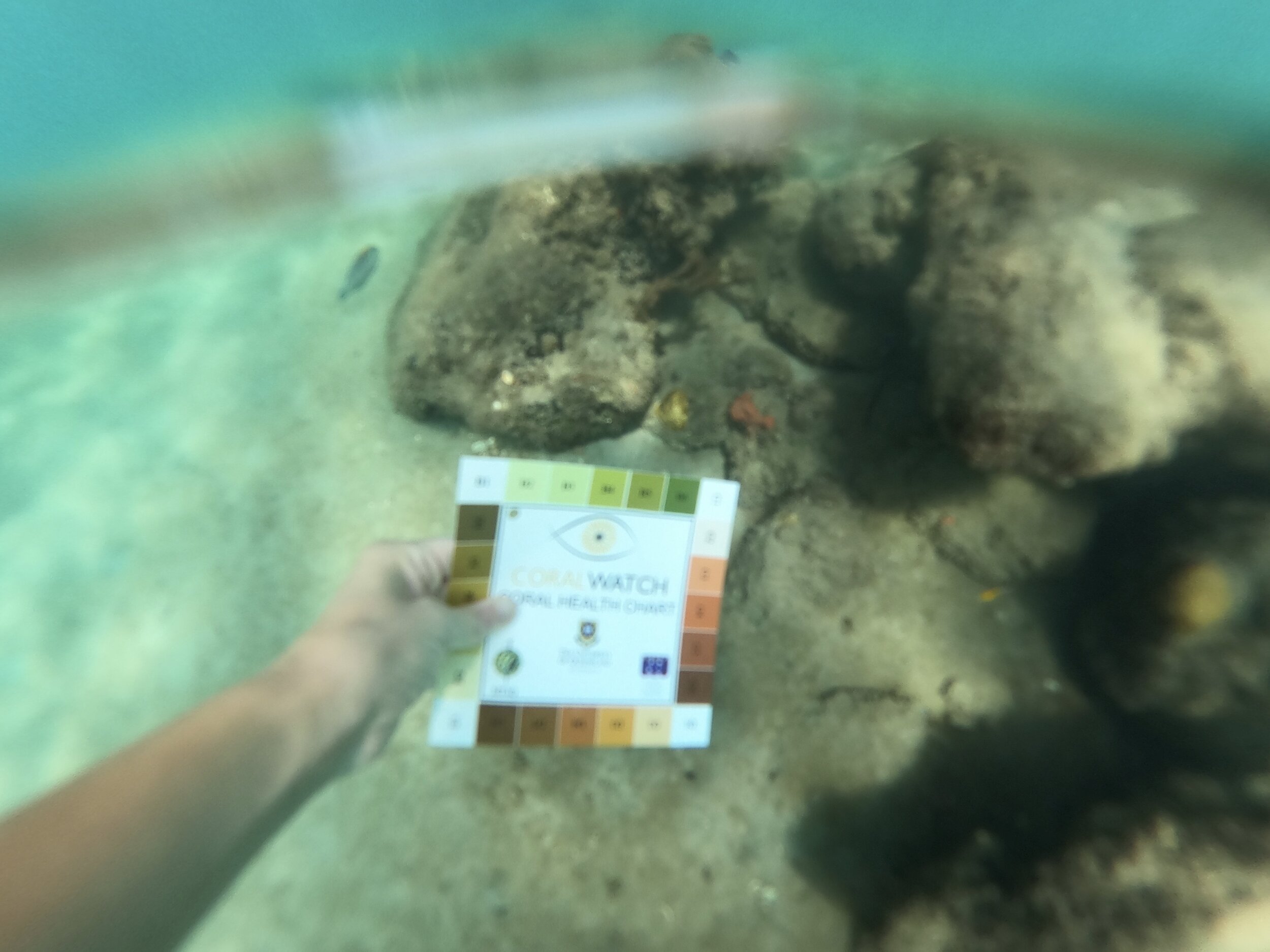PEANUT ISLAND CORAL PROJECT
Lake Worth Lagoon has long been cherished by snorkelers, divers, boaters, and beachgoers. Despite the daily challenges posed by fluctuating salinity and temperature levels, turbidity from local vessel traffic, and other disturbances, it remains an ideal location for large-scale coral settlement. The abundance of reef-building coral colonies that have naturally settled on the artificial reef materials in various spots throughout the lagoon is remarkable, particularly around Peanut Island. The corals in this area continue to adapt to changing ocean conditions and ongoing sedimentation, making them a valuable resource for conservation efforts.
Since 2018, The Reef Institute (TRI) has been closely monitoring the corals around Peanut Island in collaboration with the Palm Beach County Department of Environmental Resources Management and the Palm Beach County Parks and Recreation Department. Over the years, the Institute has identified more than 23 species of corals, which represent nearly half of the most common reef-building coral species found in Palm Beach County. These corals are providing important insights into adaptability and the long-term survival of reefs. They demonstrate how well they can thrive despite fluctuating temperatures, salinity levels, and varying water quality. TRI not only monitors the corals and continued coral recruits but also assesses the area's biodiversity. This nearshore reef teaches us valuable lessons about how corals can adapt when given a chance.
This adaptability is especially important considering that, along with the usual threats faced by coral reefs—such as heat, nutrient pollution, and ocean acidification—Florida’s reef-building corals are also suffering from Stony Coral Tissue Loss Disease (SCTLD). SCTLD is a highly lethal coral disease that spreads rapidly and has severely impacted coral populations along the Florida Reef Tract since 2014. Over half of all reef-building coral species in Florida are affected by this disease, and the National Oceanic and Atmospheric Administration (NOAA) estimates that Florida’s corals now cover less than 2% of their original area. However, while natural reefs are experiencing devastation, the corals at Peanut Island seem to be growing and adapting.
GET INVOLVED:
The Reef Institute offers various opportunities to participate in our Peanut Island projects. These include citizen science initiatives where you can learn how to collect information about the reef, field trips, and week-long marine science intensives. Want to learn more? Get in touch with us!




